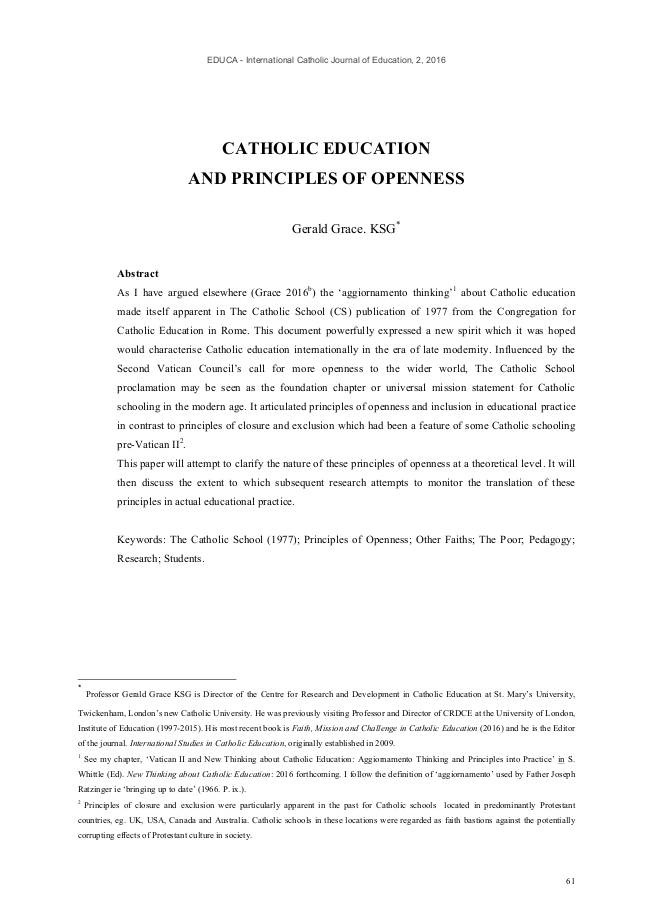Catholic education and principles of openness
Main Article Content
Abstract
As I have argued elsewhere (Grace 2016b) the ‘aggiornamento thinking’1 about Catholic education made itself apparent in The Catholic School (CS) publication of 1977 from the Congregation for Catholic Education in Rome. This document powerfully expressed a new spirit which it was hoped would characterise Catholic education internationally in the era of late modernity. Influenced by the Second Vatican Council’s call for more openness to the wider world, The Catholic School proclamation may be seen as the foundation chapter or universal mission statement for Catholic schooling in the modern age. It articulated principles of openness and inclusion in educational practice in contrast to principles of closure and exclusion which had been a feature of some Catholic schooling pre-Vatican II2.
This paper will attempt to clarify the nature of these principles of openness at a theoretical level. It will then discuss the extent to which subsequent research attempts to monitor the translation of these principles in actual educational practice.

